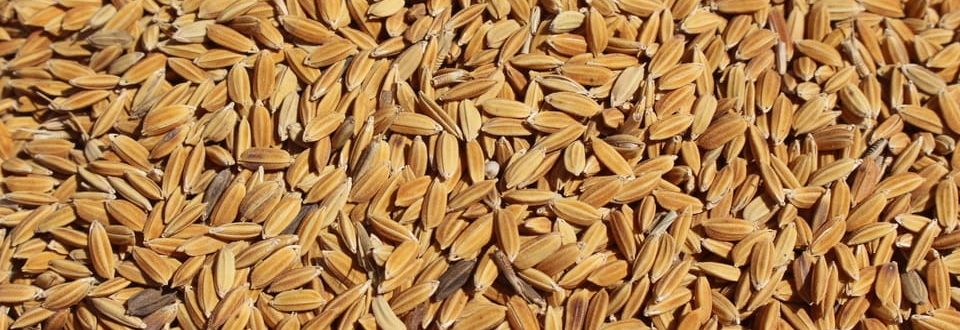Date Issued: August 27, 2018
The Peasant Farmers Association of Ghana (PFAG) is calling on the government to make budgetary allocations to local seed growers in the annual budget to strengthen local seed production.
The Association’s call is included in a nine-point communiqué issued after an inception workshop at the Noguchi Memorial Institute of the University of Ghana last week.
The Association of small-holder farmers took a strong position against attempts by some interest groups to introduce Genetically Modified Organisms (GMOs) into the country.
“It is our considered view that GMOs will disempower the local seed grower and weaken the indigenous seeds thereby making Ghana perpetually dependent on foreign companies for seed.
“Apart from the unresolved issue of health implications on the consumption of GMOs, we believe that adoption of GMOs will further enslave Ghanaian farmers as they will always have to buy the rather unaffordable seed and be at the mercy of the foreign company If we have sold our gold, cocoa, oil etc. and are left with seeds, why should we be eager to sell the seeds too?” the communiqué said in part.
Read the full communiqué adopted by the peasant farmers below.
COMMUNIQUE ADOPTED AT THE END OF A TWO-DAYS’ INCEPTION WORKSHOP HELD AT THE NOGUCHI MEMORIAL INSTITUTE, UNIVERSITY OF GHANA FROM 8TH TO 9TH AUGUST, 2018 AND TO TRAIN PEASANT FARMERS ON HOW TO EFFECTIVELY PARTICIPATE IN THE MONITORING OF THE GOVERNMENT FLAGSHIP PROGRAMMES
We smallholder farmers across the country, under the auspices of the Peasant Farmers Association of Ghana (PFAG) and other Stakeholders in the agricultural sector, have at the end of a two day training programme on how to effectively monitor the government’s flagship Programmes, Planting for Food and Jobs, One District One Factory and One Village One Dam, hereby adopt the following:
1. We are vehemently opposed to any attempt(s) to introduce Genetically Modified Organisms, (GMOs) into the country. It is our considered view that GMOs will disempower the local seed grower and weaken the indigenous seeds thereby making Ghana perpetually dependent on foreign companies for seed. Apart from the unresolved issue of health implications on the consumption of GMOs, we believe that adoption of GMOs will further enslave Ghanaian farmers as they will always have to buy the rather unaffordable seed and be at the mercy of the foreign company If we have sold our gold, cocoa, oil etc. and are left with seeds, why should we be eager to sell the seeds too?
2. We are calling on government to empower the local seed industry by providing the enabling environment and logistical support to ensure that Ghana is Seed Reliant and not Seed Dependent. It is disheartening that government of Ghana had to import seeds from Nigeria and Cote d’Ivoire in 2018 to the tune of 8 million US dollars when the National Association of Seed Traders, NASTAG, has repeatedly indicated its capacity, willingness and readiness to produce enough seeds to meet the seed needs of the country. How can this be in line with H. E. President Akufo Addo’s quest to have ‘a Ghana beyond Aid? Instead of importing and creating jobs for other countries, empowering their agricultural sectors whilst weakening our own agricultural sector and even making it difficult for a stable local currency government should consider the interest of the Ghanaian economy first.
3. Going forward, we urge government to make budgetary allocation to local seed growers in the annual budget in order to strengthen local seed production.
4. We Ghanaian farmers are also calling on government to expedite action on the proposed Agricultural Development Fund to ensure sustained funding for the sector.
5. We commend government on measures taken so far to address the farmer to Extension Service Officer Ratio by employing extension service officers and also engaging Extension Service Assistants. However, it is our opinion that their effectiveness will be undermined if the current package is not improved. We therefore, call on government to fully empower Extension Service Officers to enable them to work and produce satisfactory outcomes.
6. Agriculture remains a major backbone of the local economy, hence all efforts aimed at improving the sector should be inclusive. In this direction, we humbly appeal to government to increase stakeholder consultation and when necessary, to listen to and consider the views of the farmers since they are the front-line actors in the whole value chain. Our primary interest is to work with government to improve agriculture in the country our comments and recommendations that are based on our experiences knowledge should, therefore, not be viewed as antagonistic towards government.
7. We have always maintained that production is not as serious a challenge as marketing and storage. The PFJ Programme has no doubt increased production which is very laudable and we remain grateful to government. We are, however, asking for measures to be put in place to ensure that we farmers get market to sell our produce. It is a fact that if post-harvest losses continue, the morale of the farmers will be dumbed.
8. We also urge government to renew the call for backyard gardening and urban farming which are a component of PFJ. This will contribute to food security, as we will eat what we grow and grow what we eat; it will also arouse the interest of our children in agriculture from the beginning.
9. Farmers are equally unhappy about the smuggling of subsidized fertilizers meant for farmers across the country. We farmers on the ground, know for a fact, that smuggling of fertilizers is ongoing in many regions including the Brong Ahafo, Upper West and Upper East Regions. We believe the PFJ is for all Ghanaians, hence every effort should be made to ensure that the targeted beneficiaries receive them. We would appreciate it if those engaged in smuggling of fertilizers are investigated and dealt with in accordance with the laws of the land.


leave a comment
You must be logged in to post a comment.